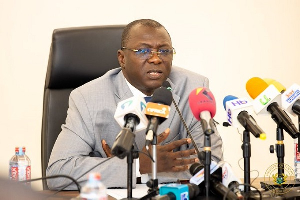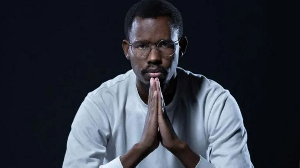It would appear that the chickens lurking around the much-touted but problematic version of the free Senior High School policy pushed by the Nana Akufo-Addo administration are on their way home to roost.
Not only are we hearing that government this week, in its usually desperate style has attempted to introduce yet another ill-considered, knee-jerk and potentially disruptive idea that it claims is a Double Intake solution, our Finance Minister is also now admitting that the policy obviously needs review.
Review? Former President John Dramani Mahama, who led the implementation of a well-thought through broad vision for the educational sector, advised that while providing free education is good, this current government should consider a stakeholders conference to evaluate the policy and ensure a strategic and financially supportable implementation in line with the country’s long-term vision.
Despite this mature suggestion, what did we hear? The New Patriotic Party led by its leader Nana Akufo-Addo, and in conjunction with accomplices in the media, cast aspersions and in some cases, went as far as to rain insults in response.
It is clear that the developments this week are not only a vindication of the position of the John Mahama administration but are also an affirmation that the free SHS was enrolled without an accompanying policy. Indeed, it was not thought-through and has been exposed as nothing but a campaign promise that had to be fulfilled at all cost.
The impending tragedy is that this cost is at the expense of our poor kids.
Speaking at the end of the NDC’s Eastern Region Unity Walk in Somanya earlier this year, Former President Mahama said, “and the point is we must adopt a system were those who can afford to pay are able to pay. I can afford to pay my son's fees, why should you give me free senior high school? Identify those who need it, who cannot afford to pay and give them bursaries so that they can pay those fees and those who can afford to pay, let them go ahead and pay. The problem this government is facing, and it is in their own interest, is that free senior high school is absolving all the fiscal space they have. And so, every money you have, you are having to put it into free senior high school. So, you can't pay district assemblies common fund, you can't pay NHIS, you can't pay GETfund, you can't pay other salaries and things because all your money is going into free senior high school. And the problem is that, this is only first year."
The views of the Finance Minister sound like a plagiarized version of this speech. This Minister has fortunately seen the wisdom in this advice because amidst the funding difficulties, he does not see the sense in the Akufo-Addo administration’s mode of implementation. He also seems to be appealing for a national conversation on the direction the policy should take.
This conversation is critical because despite having made the case for continuing the implementation of progressively free SHS in furtherance to the requirements of the 1992 Constitution, Nana Akufo-Addo maintained that the Ghanaian economy could immediately support a fully free SHS.
The visionary that he is, President Mahama as part of his transformation agenda and the revamping of infrastructure across the country, began the construction of 200 Community Day SHS to expand access to secondary education facilities before embarking upon a full-scale implementation of free SHS.
He had always argued that because of the unavailability of facilities, many graduates from the Junior High School (JHS) are unable to continue to SHS. The focus on Community Day Schools was to ensure that JHS graduates can access SHS in their communities as day students, and benefit from government’s progressively free secondary education.
The result of that vision is the rather bold Mahama Legacy of the now famous E-Blocks, which completely moved away from the construction of 9-unit classroom blocks to a 3- storey structure with library, computer laboratory and staff rooms to accommodate many more students.
Many including the celebrated former Minister for Education and a former Vice Chancellor of the University of Cape Coast, Professor Naana Jane Opoku-Agyemang, the current Provost of the same University, Professor George T. Oduro, and the NPP’s own former minister, Dr. Kwame Addo-Kuffuor also questioned government’s readiness for the full rollout of this enormous cost-intensive policy and raised questions about readiness as well as sustainability. Ignoring these voices led to unfortunate incidents.
Many can recall the harrowing stories of congestion in many of the schools at the start of the implementation, with bedbug infestations, students sleeping in the open or on chop-boxes, and terrible sanitation conditions.
Parents, teachers, headmasters under the umbrella of CHASS, and the Chief Justice all called for caution. Some were also ad idem that the policy was laudable and long overdue. Others were however understandably apprehensive owing largely to the inadequate infrastructure, feeding challenges, lack of clear fund sources and the poor teacher to student ratios given the numbers to be admitted.
A country such as ours with very high birth rates, a huge youth bulge has just introduced a free SHS policy without sparing a thought for its funding and how the large number of students will be accommodated and taken care off, fully by the state.
Akufo-Addo and his trainee minister for education should have also realized that in other countries that offer free high school education, the boarding school system is relatively insignificant.
No thought was also spared for its sustainability.
Fast forward, we are wallowing in this quagmire today because government refused to listen and has rather preferred to proceed with its political plans instead of a national and developmental plan.
Alas, we are now seeing a shift in policy without an admission of the challenges and difficulties arising out of the implementation of the policy.
Alas, beyond a simplistic PowerPoint document, there is no mention of how the new double track system will be implemented or an acknowledgement of the attendant social, logistical, and educational repercussions. Above all, parents who are the single largest constituency in this endeavour, have not been consulted.
To most minds, the only difference between a term and a semester is the length of stay. Students and other stakeholders are confused and have many questions but no one is answering.
Will the much-awaited Stakeholders Conference, long advocated by former President Mahama now take place, especially since it will help Akufo-Addo extricate himself from the noose he has tied around himself?
Will the joy of the politically famous free SHS be short lived while its impact on academic performance and the outcome of examinations felt for many years to come? Will the chickens come home to roost?
-----------------------------------------------------------------------
The writer, Joyce Bawah Mogtari, is a lawyer and Special Aide to HE John Dramani Mahama, a former President of Ghana. She is also a former Deputy Minister for Transport.
Click to view details



Opinions of Monday, 30 July 2018
Columnist: Joyce Bawah Mogtari
Double-Track System: A vindication of Mahama’s progressively Free SHS Policy?
Entertainment


















